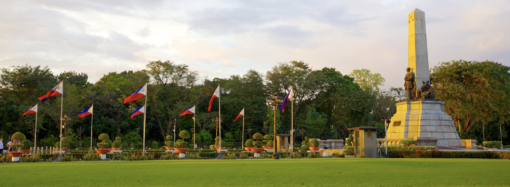This is the third part of the four-part series on Media and Information Literacy in the Disinformation Web. This article will feature essential fact-checking tools that enhance media and information literacy in the Philippines, helping you combat misinformation and verify credible sources. Combating Misinformation in the Philippines: Essential Fact-Checking Tools As previously discussed in the
This is the third part of the four-part series on Media and Information Literacy in the Disinformation Web. This article will feature essential fact-checking tools that enhance media and information literacy in the Philippines, helping you combat misinformation and verify credible sources.
Combating Misinformation in the Philippines: Essential Fact-Checking Tools
As previously discussed in the last two articles, the Philippines faces a growing threat – the rapid spread of misinformation. This misinformation includes false narratives, political propaganda, and misleading health claims circulate widely. It has proven to jeopardize democratic processes, public health, and social cohesion.
In this context, media and information literacy (MIL) has become an indispensable skill for Filipinos. MIL equips individuals with the ability to critically evaluate information, identify credible sources, and make informed decisions. Fortunately, a range of powerful fact-checking tools are available to aid in this endeavor.
Local Fact-Checking Initiatives
Several local organizations have emerged as leaders in the fight against misinformation in the Philippines:
Tsek.ph: This collaborative initiative, launched during the 2019 elections. It brings together academic institutions and media organizations to verify information and counter disinformation, particularly during critical periods like elections.
VERA Files: This organization is founded by veteran Filipino journalists. VERA Files is an independent media organization renowned for its rigorous fact-checking and investigative journalism. Their commitment to accuracy and impartiality makes them a trusted source for verifying claims.
FactRakers: Led by journalism students at the University of the Philippines-Diliman, FactRakers focuses on verifying claims and promoting media literacy, contributing to a more informed society.
International and Online Fact-Checking Tools
Beyond local initiatives, several international tools are readily available to help Filipinos combat misinformation:
Google Fact Check Tools: Google offers a suite of tools designed to aid in information verification. The Google Fact Check Explorer allows users to search for debunked stories and images globally, while the Fact Check Markup tool enables content creators to add structured data to their fact checks, enhancing their visibility online.
Challenges and Considerations
While fact-checking tools offer immense value, challenges remain:
Artificial Intelligence (AI): AI is increasingly used in fact-checking for tasks like reverse image searching and natural language processing. However, Filipino fact-checkers have expressed concerns about the reliability, potential biases, and security risks associated with AI tools.
Solutions and Best Practices
To effectively combat misinformation, several key strategies are essential:
Proactive Fact-Checking: Key players should verify claims head on, before they gain widespread traction. This is crucial to prevent the spread of misinformation.
Collaboration: Media organizations, academic institutions, and technology companies must work together to develop robust fact-checking tools and strategies.
Public Education: Raising awareness about media literacy and the availability of fact-checking resources is essential to empower students to critically evaluate information.
Conclusion
The fight against misinformation in the Philippines is ongoing. Nonetheless, Filipinos have access to a wealth of resources to aid in this battle. By utilizing local and international fact-checking initiatives, individuals can enhance their media and information literacy. While challenges exist, proactive fact-checking, collaboration, and public education remain essential pillars in the effort to build a more informed and resilient society.






Leave a Comment
Your email address will not be published. Required fields are marked with *